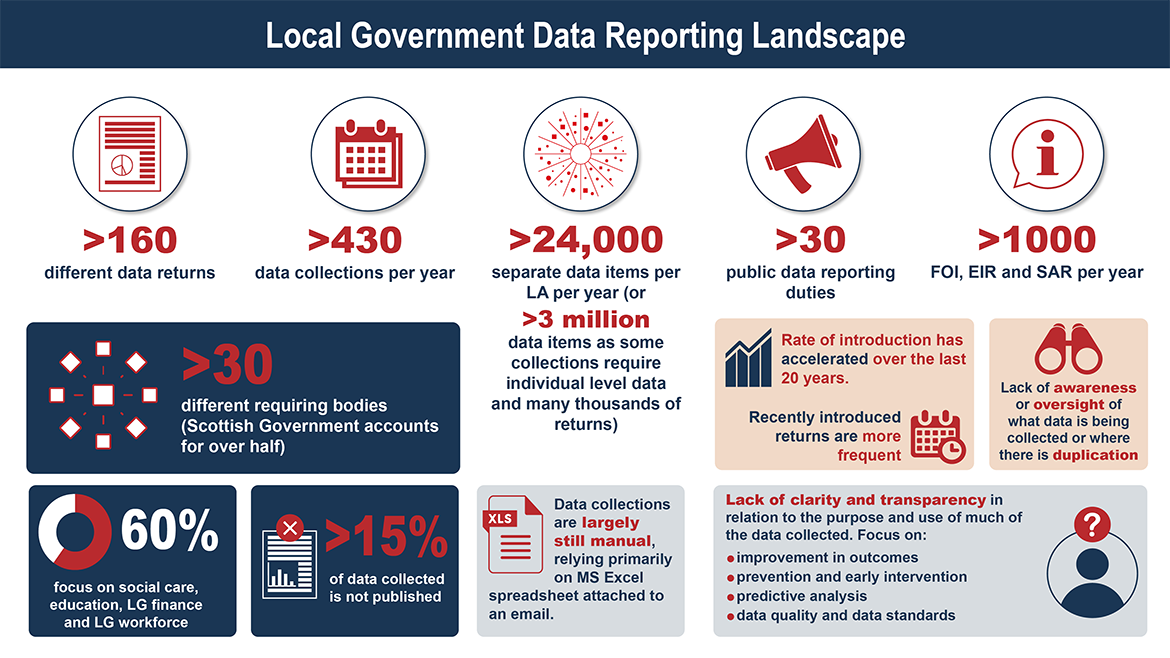Phase 1 of this project undertook a comprehensive mapping of the current data reporting landscape for local government. This reveals a clear picture of the current reporting that councils are required to produce for external stakeholders. The mapping will be pivotal in helping assess the policy relevance of the data currently collected, and to inform where there is duplication and where there may be opportunities to work together to streamline and reduce existing collections. It will also provide a valuable resource to promote greater use and re-use of the data that is currently collected.
The two infographics below summarise the findings:

Download a full description of this image.

Our analysis of current data reporting activity reveals the scale of the reporting burden currently facing local government and exposes a landscape which is data rich, but insight poor. The sheer volume of current data requests is undermining both our confidence in the quality of data returned, and also our ability to derive useful insights and use the available data effectively to inform evidence-based decision making. An ever-greater capacity is required to service these commitments, leaving less resource to undertake the value-added work of analysis, interpretation and use. In addition, the cost of producing this volume of data is unnecessarily high and will only keep growing.
Improving governance
To ensure more effective use of data and improve our ability to generate useful insights, a collective commitment is needed to reduce current reporting activity and keep only the data that is relevant and useful. A governance mechanism is required to support local government and Scottish Government to work together, and with other sector partners, to develop a shared understanding and ambition.
To assist with this, this project has produced the following outputs:
- A mapping of all current data reporting activity to support consideration of where reductions might be targeted, and to promote greater use/re-use of data which is collected.
- A set of high-level principles to support reviews of the relevance and usefulness of current and future reporting.
- A calendar of data returns to improve planning and co-ordination of future reporting activity.
- A mapping of data networks and initiatives which could inform, and be informed by, this work.
Phone: 07747 711310
-
Phase 1 Final Report
The final report of the first (discovery) phase of the project.
-
The Crerar Review
Report of the independent review of regulation, audit, inspection and complaints handling of public services in Scotland.
-
The Verity House Agreement
Partnership agreement between the Convention of Scottish Local Authorities (COSLA) and the Scottish Government “setting out our vision for a more collaborative approach to delivering our shared priorities for the people of Scotland.”